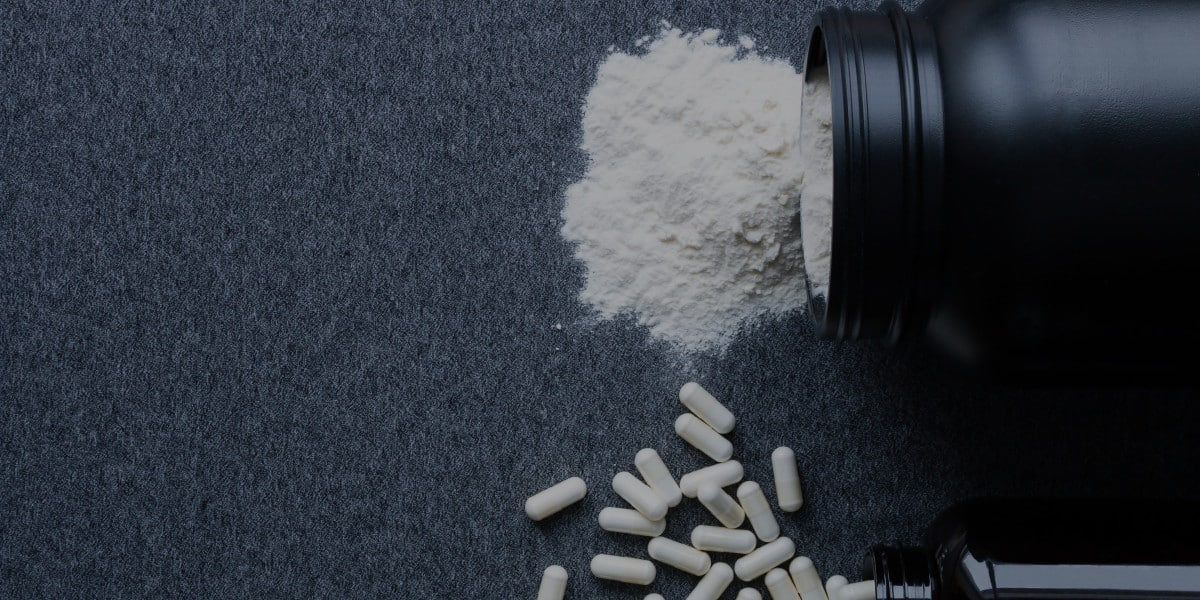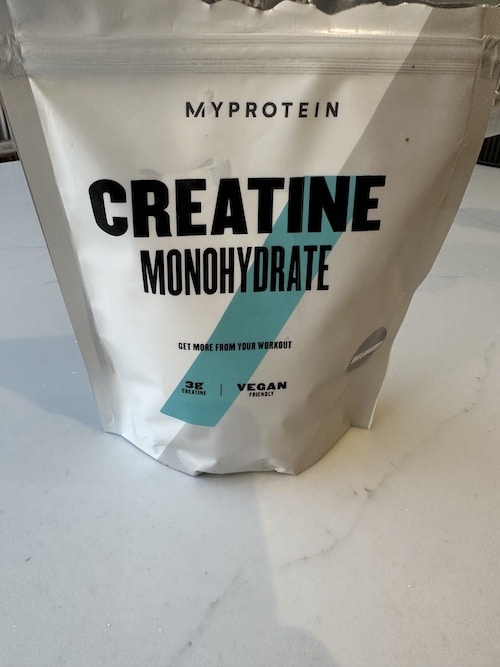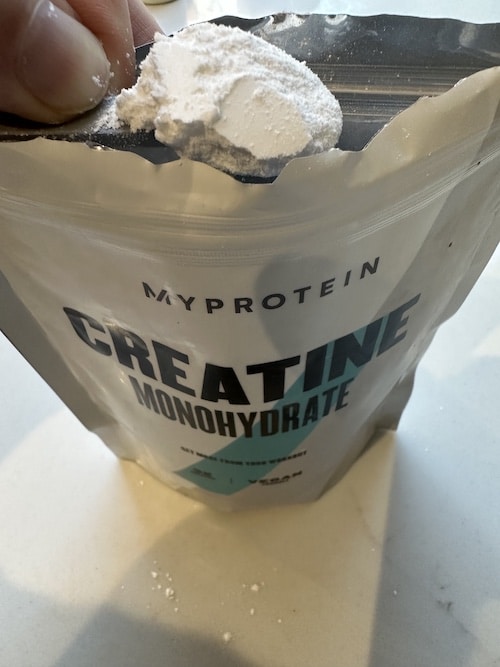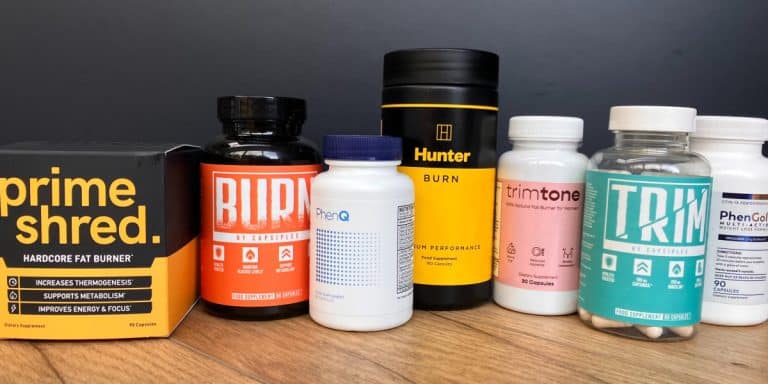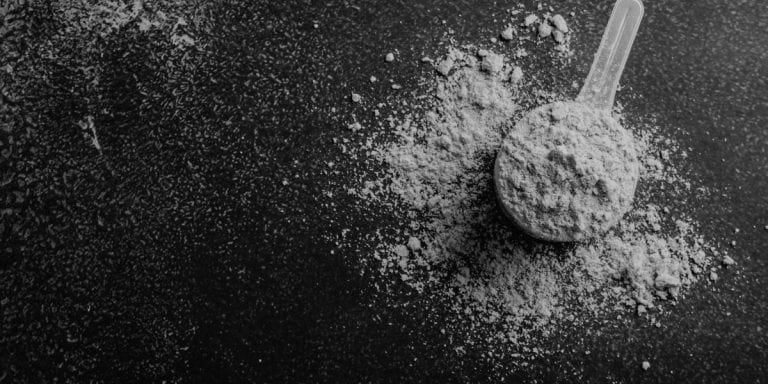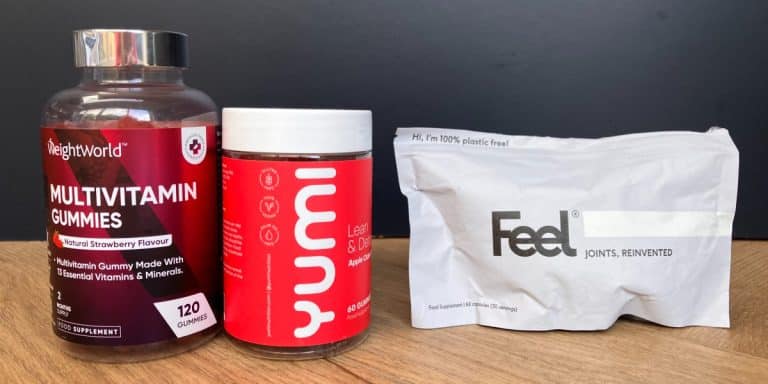Does Creatine Increase Testosterone?
Creatine and testerone – two words you might have often heard together. But does creatine increase testosterone? Here we give you the clear-cut answer.
I would like to call the idea that creatine can increase testosterone output a popular myth. It is certainly popular. It also isn’t quite correct, so you might call it a myth. However, there is a little more to it – the key is in the caveats, as is so often the case.
Happily, creatine is amongst the best and most thoroughly tested products on the market. The data available on it are dizzying. Thanks to this, we know how it works with an understanding almost unparalleled in the modern supplement market.
And yes, if you’re looking to boost your natural testosterone output, you may want to feature creatine in your supplement regime. However, it does little by itself – creatine in isolation has no effect whatsoever on your testosterone output.
In brief, there is a good deal of evidence suggesting that creatine use can lead to post-exercise testosterone increases in athletes and those living a particularly active lifestyle.
These results aren’t clear.
However, exercise and activity levels in your lifestyle represent one of the biggest variables in testosterone output. If you train hard and maintain a relatively high muscle mass, there is a good chance that you will be producing testosterone more optimally than otherwise. And creatine is a great ally for anybody looking to do this.
Creatine & Increasing testosterone Levels
None of the mechanisms involved in creatine consumption directly affect testosterone levels in any way. We need to be clear on this before we start talking about any potential benefits of taking creatine for boosting your testosterone levels.
With this in mind, we can begin to see some potential uses for it. One study from 2011 showed the results on amateur swimmers’ testosterone levels when taking creatine. There was a substantial increase immediately post-workout.
There was also no change to cortisol, the stress hormone, which generally enjoys an inverse relationship with testosterone (the more cortisol, the less testosterone, and vice versa).
This tracks with the results of a landmark study from the late nineties which looked at active men enjoying a testosterone boost after taking creatine and performing an intense leg workout (heavy squatting and so forth). There was no change after bench pressing.
However, both studies – indeed, most studies on the subject – cited exercise as the main variable. Intense exercise, in particular, was central to the testosterone rises. As stated above, creatine didn’t play a role in and of itself.
Thus a popular and enduring theory emerged from creatine’s mythos. Namely, creatine doesn’t directly increase testosterone, as we know, but that it does help with intense training, which does increase testosterone output.
This intensity is also key – the larger the muscle group (legs with the lower body training, full body with the swimmers) and the harder they work, the greater the result (hence little to no change after bench pressing, the triceps, pectorals, and anterior deltoids being relatively small muscles).
Intense exercise & testosterone
There are a great many health benefits to be gained from regular exercise. This is incontrovertible. These benefits are also quite profound – they happen often at the cellular level. Our hormonal output is dramatically affected by the activity levels inherent to our lifestyles. Testosterone is a hormone.
Boosting testosterone levels through exercise is like much else in exercise and nutrition. It seems really quite simple, but in reality, it can be very hard to do.
The basic theory is straightforward and sound. When we exercise more, our body signals that we should be releasing certain beneficial hormones, like testosterone, whilst minimising output of certain non-beneficial hormones, such as cortisol.
This puts us into something of a virtuous cycle, or a positive feedback loop. This is because we exercise, altering our body’s chemistry, our hormonal output. This altered hormonal output then makes it easier for us to exercise, and more beneficial, as our results and recovery improve.
This all almost becomes self-fulfilling after a relatively short period. You will find it increasingly easy and rewarding to maintain your active lifestyle, for a variety of factors, including this altered hormonal output. Thus you will be more likely to keep it up, perpetuating this positive feedback loop.
As above, though, this is easier said than done. Anybody who has tried unsuccessfully to get into an intense training regime will tell you this. There are myriad things that can get in the way.
Life often gets in the way, disrupting this feedback loop – I have certainly gone through stressful periods in my life during which cortisol won hands down over testosterone, no matter how active I tried to remain.
Exercise’s positive feedback loop
But there is plenty that we can do to give this positive feedback loop the best chance of continuing.
First things first, this loop begins with exercise. You have to put some kind of physical activity in there to keep the wheel spinning. However, it needn’t all be high octane stuff!
If you feel yourself burning out powerlifting or sprint-swimming, that’s OK – it happens to all of us sometimes. Don’t take this as a cue to stop. Take it as a cue to switch gears for a bit. Even just a half-hour stroll around your local park is enough to keep your hormone balance in check.
Try not to sit around too much, either. Get up every hour or so and wander around, get the blood flowing. Then, when you can, get back into your more intense training regime.
This is perfect advice if you’re just getting into it, too. Don’t reach for the stars, at least not at first. If you’re not used to living an active lifestyle, consider this feedback loop as your main goal. Don’t aim to squat twice your bodyweight or hit 95% of your maximum heart rate every day.
Kick this feedback loop off by beginning small and building. It almost self-perpetuates, so you will be able to build quickly. But getting it started is your main priority.
Try to eat well, too. Cortisol makes us crave all the wrong foods – high sugar, salt, and fat snacks. Think of stress eating and the kinds of things you reach for. This is in large part caused by cortisol.
Or, at least, it’s often caused by stress, which exists in a negative feedback loop with cortisol.
Getting into this virtuous cycle will leave your body craving less of the bad stuff. However, old habits die hard. Make sure that you’re giving your body what it needs, not simply what you’re used to feeding it.
This will help to keep that negative feedback loop at bay. It will help you to maintain that positive one.
Rest as much as possible, too. Testosterone levels can only remain high in the presence of good-quality rest. Fatigue will bring about elevated cortisol levels.
Your body does most of its growth and repair at night. What happens in your sleep affects your hormonal output a great deal. It will also be where your body recovers from exercise, allowing you to keep fatigue at bay, performance high, and gains coming in.
Creatine’s role
This is all well and good, but where might creatine fit in this?
It’s a small role. As we keep seeing, there is no direct interaction between creatine consumption and testosterone levels. Get your house in order as a priority – do everything above. This will be what gives you your increased testosterone output.
Stay active. Eat well. Low sugar and salt, high healthy fat, low unhealthy fat, complex carbs, plenty of lean protein… you know the drill.
If you’re just getting active, slowly build up intensity and frequency (duration is less of a variable for testosterone).
Keep pushing your goals as you meet them. And take time out to recover. Active recovery, sleep, mobility work, and meditation are all your friends here. They have all been linked to elevated testosterone levels.
So what does creatine do in all of this?
It’s not a miracle drug. It’s an exercise supplement, designed to make your training more effective and boost your athletic output and capabilities. This is the beginning and end of it.
The leading theory behind creatine function in intense exercise is that it works on the ATP (adenosine triphosphate) cycle.
ATP is our main energy source. In bolstering its efficacy, as creatine is thought to do, you should see two benefits:
- Firstly, muscle fibres should trigger faster and more effectively. This means greater contractile power, meaning more power and strength output.
- Secondly, your muscles should be stimulated to grow with a slight amount more efficacy.
This theory is backed up by plenty of data. As I’ve said above, creatine is one of the best-studied fitness supplements in the world.
Creatine has been shown to improve weightlifting performance, explosive training like HIIT and sprinting, and even endurance. It is all about performance and, to a lesser degree, adaptation.
What this all means
So, if you want to improve your testosterone levels, throwing back a scoop of creatine will do nothing for you. Absolutely nothing. You will be wasting time, money, and hope. I cannot emphasise enough the lack of any direct link between creatine intake and testosterone output. The two never directly meet.
However, if you live an active, healthy lifestyle, you will get into a positive feedback loop that almost certainly will improve your testosterone output. You will likely be healthier in practically every measurable way. This includes your hormone balance.
Higher-energy, explosive exercise has been linked more closely with testosterone output than any other kind. Use large muscle groups intensely and you should see your natural output rise. The harder or more efficiently you train and the better you recover, the more pronounced this effect should be.
This is where creatine can come into play. I wouldn’t recommend anybody take a step into the weight room or onto the sprint track without using it. It’s safe, cheap, effective, and incredibly well-studied. It is proven to work, improving exercise performance and recovery.
Creatine will therefore make that positive feedback loop far easier to stay in and far more effective overall. Training and recovery directly affect testosterone output.
Creatine directly and very positively affects testosterone training and recovery.
It sits at a step removed from testosterone output, but used correctly, in the right circumstances, and with all your other ducks in a row, it very definitely has its place in hormone optimisation.

